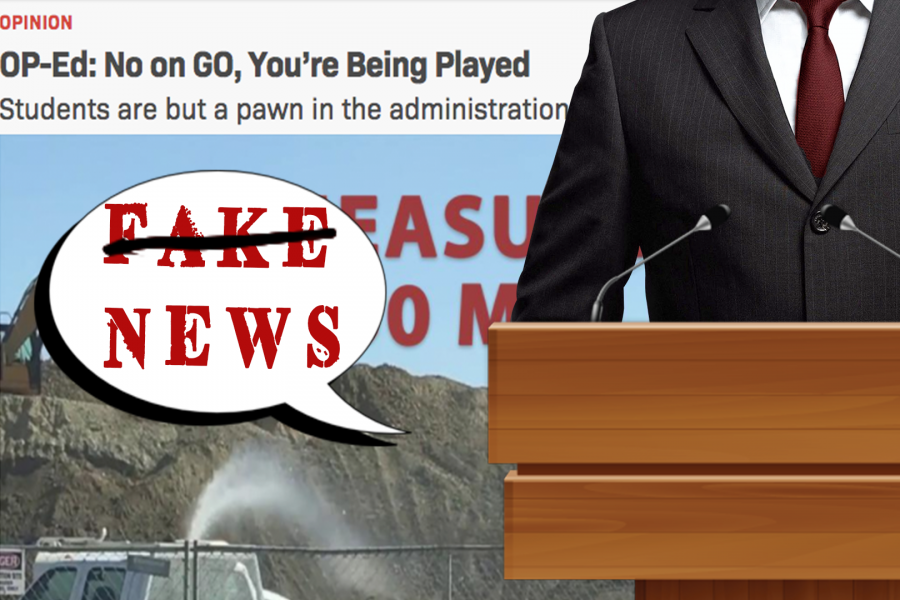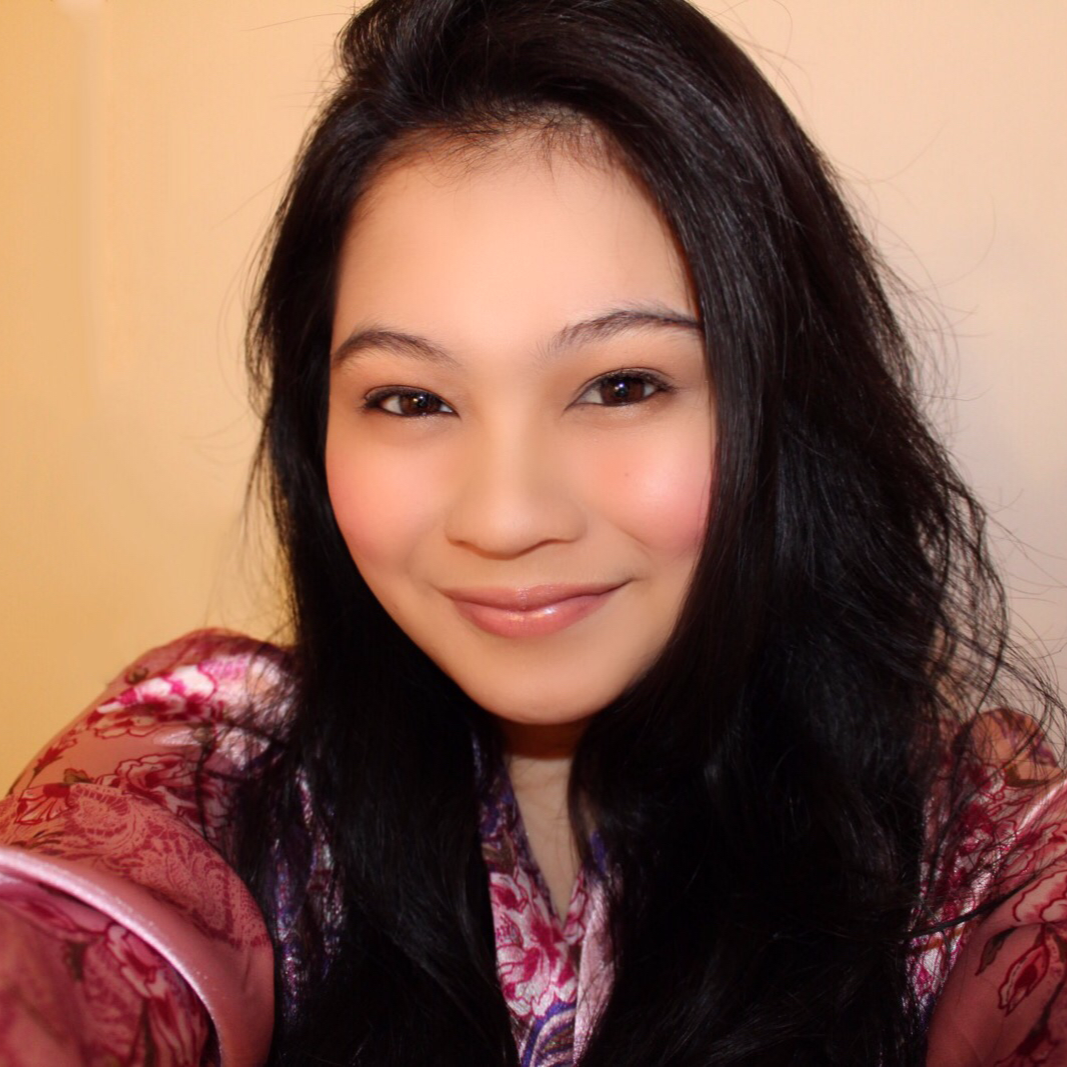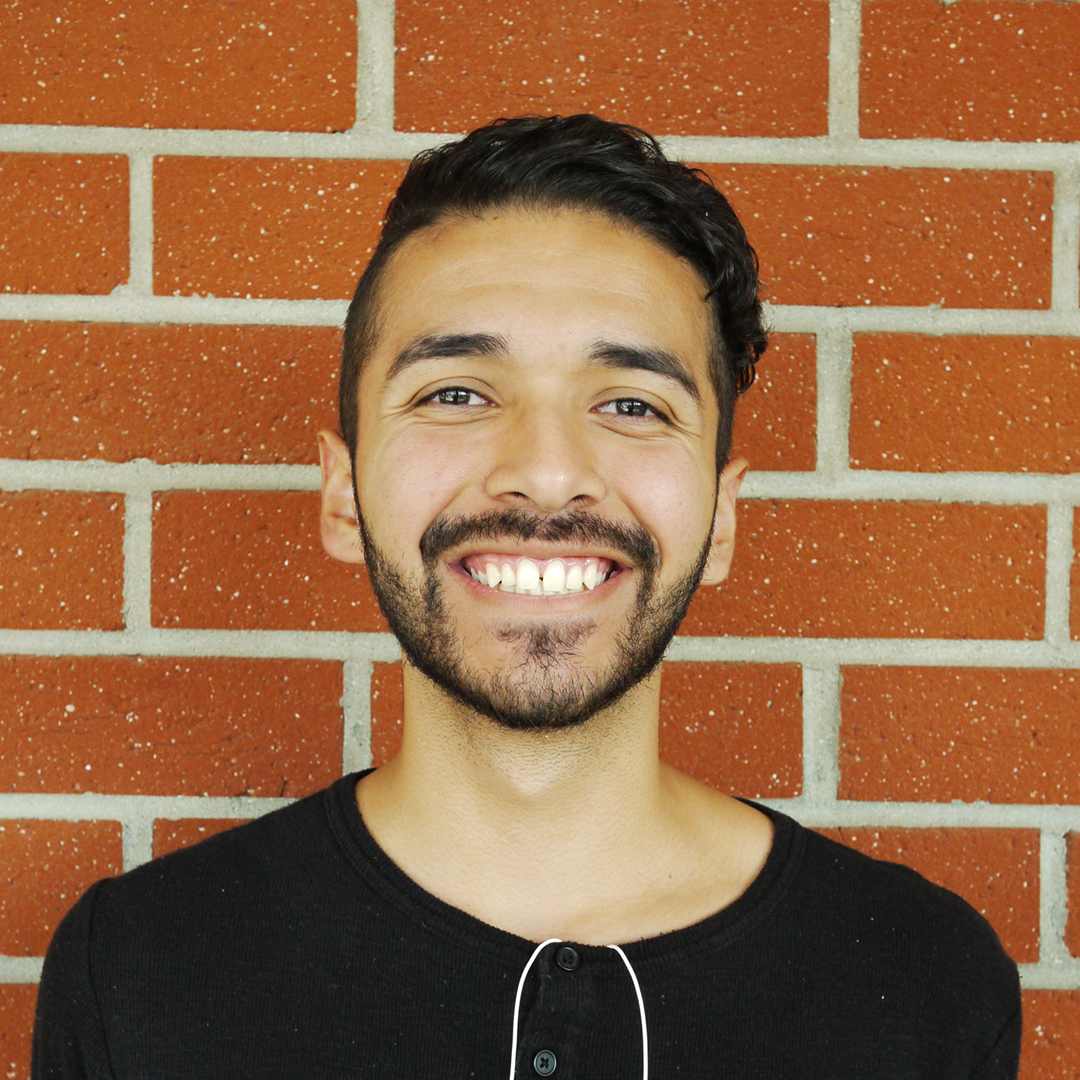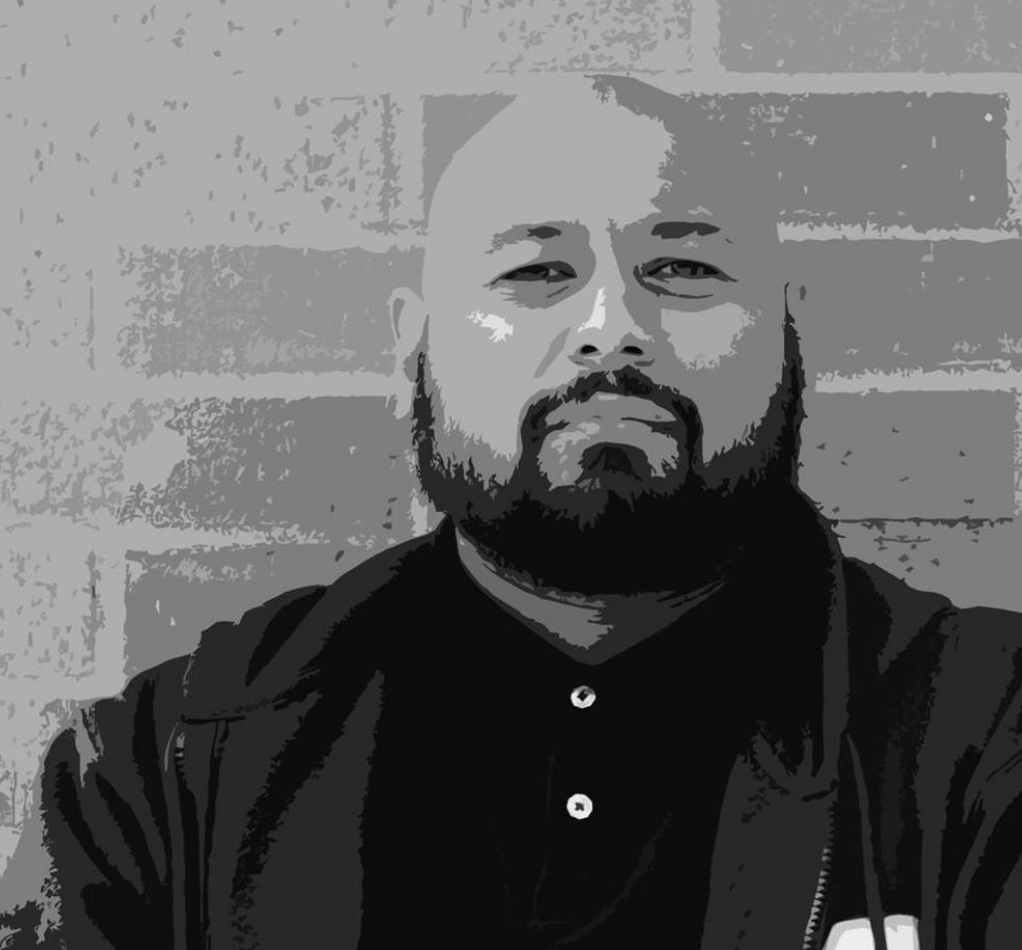At the most recent Academic Senate meeting held on Nov. 8, Associated Students Faculty Relations Senator Jacob Duarte misled a standing-room only crowd of attendees by calling an opinion-editorial published on SAC.Media written by the SAC.Media Editorial Board “Fake News.”
The article was not a news story as Duarte led attendees to believe, but an opinion-editorial against the passing of Measure GO. Duarte said in reference to the article, “We’ve had enough of fake news for a bit,” which was responded to by some attendees with a laugh.
Not only did Duarte call our opinion-editorial “fake news,” but he also included it in the official Associated Students Report which presented official results of the passing of Measure GO.
Attacking the student media by calling it fake news is as bad as Donald Trump lashing out at any news story or news outlet that does not agree with him.
Our student news brings balanced and unbiased news to our audience, including the student body, faculty, administration and the local community. We are the only community college to have a partnership with The Washington Post, and have won numerous awards including General Excellence and Outstanding News Outlet for our website and our news reporting from top local and national college media organizations including the Associated Collegiate Press ACP, the College Media Association CMA, the California College Media Association, CCMA, and the Journalism Association of Community Colleges JACC. We have been called the “most innovative college media program” by Nieman Lab at Harvard and our adviser and editors have been called to speak nationwide about our program.
We have a responsibility to 17,500 active readers. For Duarte to publicly refer to an op-ed that takes a stand that he and AS do not agree with as “fake” is immature, irresponsible, and ignorant.
SAC.Media has been covering Academic Senate meetings for years. This meeting was no exception. Professor Toni Albertson, professor of journalism and adviser of student media, sent nine of her beginning newswriting students to cover the meeting.
“This is meant to be a learning experience for students who have reached the point where they understand how to cover a live meeting. They understand the importance of factual reporting and are required to record and transcribe the meeting and all live interviews,” Albertson said. “To see these students come back to the newsroom deflated and embarrassed was infuriating.”
Students attending the meeting were unprepared to hear the comments by Duarte.
“I was offended,” Audrey Parayno, 19, journalism major and beginning newswriting junior staff reporter, said. “I know how much pride the people in our newsroom take in reporting news and presenting the facts.”
Alinna Boonklun, 23, a beginning newswriting student who received her bachelor’s degree in film from San Francisco State but returned to Mt. SAC to take some journalism courses, covered the meeting.
“There were a few chuckles,” Boonklun said. “The 101 students, we just sunk in our seats after they said that. His manner felt like an attack.”
Duarte shared the official results and expressed his thanks to volunteers for the “Yes on GO” campaign and shared that Associated Students were happy with the passage of Measure Go.
Duarte then moved on to a second point that referred to SAC.Media’s Opinion-Editorial, “No on GO, You’re Being Played,” written by the SAC.Media’s Editorial Board, Editor-in-Chief Ferry Baylon, Managing Editor Brigette Lugo, News Editor Joshua Sanchez, Features Editor Joseph Harvey, Sports Editor Andres Soto, and Photo Editor Brett Hernandez.
Duarte began by stating, “As we all know, Measure GO passed. These are the official numbers but with this came some backlash.”
Duarte also said, “SAC Media has recently released an article stating that… claiming that students are nothing but pawns in this administration’s game.”
Duarte went on to list specific “claims” featured in the “article.” He concluded the delivery of the report with the comment about “fake news.”
The references to our op-ed have been taken directly from the report and are as follows:
This article claims that students are ‘but a pawn in the administration’s funding game of chess.’
Other claims also include:
● Students lied to other students, for $10 an hour
● Fraudulent use of Measure RR bond money
● Measure GO promoted paid students as “volunteers”
● Mt. SAC went about $35 million over the budget for the stadium, and that
Scroggins lied regarding the settlement with the city of Walnut.
● Etc.
Our response to the points AS presented within their report are as follows:
The “lying” was an opinion supported by the editorial staff. There was a clarification that the $10 was for phone banking.
Within the op-ed, we never stated that Measure RR funds were used fraudulently. We wrote: “Many faculty members at Mt. SAC are against Measure GO, because they’ve seen the false hope in Measure R (2001) and Measure RR (2008).
AS’ reference in their report to “Measure GO promoted paid students as ‘volunteers,'” was clarified in the correction on our initial op-ed. Only some volunteers said they were not paid.
Our op-ed stated that the stadium was $35 million in budgeting alone and that the settlement with the city of Walnut cost $1.4 million. Scroggins had said the settlement was $1.4 million, but he did not make the comment about the $35 million over budget. We did not claim that Scroggins lied.
Lauren Berney, 24, a journalism major in the beginning newswriting class who serves as a staff photographer and junior reporter, was embarrassed.
“When I heard Jacob say that in the meeting, I felt embarrassed,” Berney said. “He presented it as a news story and said we were fake news. It was like he was trying to embarrass us as a group of student journalists.”
Parayno said Duarte’s use of the term “fake news” was a big statement to make at the meeting.
“There were a bunch of us from SAC Media in there covering it and you have someone say that. How do you expect people to react to that?” Parayno said.
Liesel Reinhart, professor of communication and faculty professional development coordinator, was at the meeting. She said that it was hard to hear everything the student said because of the room, but “if it was not described as an opinion piece, then it would be a mischaracterization, for sure.”
“I’d like to see them correct that,” Reinhart said.
She added, “On a personal note, in a week (and year ) when we have seen egregious acts by political leaders against the media it is hard not to see the tone and language of the AS report as potentially contributing to a climate of disrespect for and distrust of a democracy’s most important non-governmental institution.”
Reinhart added that there was a lack of transparent information on the measure for students to really look into. She explained:
“In general, there was very little public information about the bond measure from the college or from the Measure GO campaign. I don’t think students had much, if any, information, let alone engaged debate about the merits of this massive measure. Many of them will be paying for it for years to come. It is more than fair for your op-ed writer to raise concerns, challenge information provided by the Pro-Measure GO organization, pose questions about accountability and oversight, and advocate for a no vote. In fact – it is the responsibility of media to engage in such discourse.”
Professor Tom Edson, professor Emeritus of English, said he was surprised the term “fake news” was used by an AS Senator.
Edson said he is more disappointed in his colleagues. He explained:
“Why didn’t any sitting member of the Academic Senate ask Duarte this central question: does this reference to the editorial formally reflect a resolution of the Associated Students or is it his own opinion? In the case of the former, what is that resolution? In the case of the latter, why is this part of your report if it does not reflect a formal AS viewpoint?”
As a free student press, the student editors are in their First Amendment right to write an op-ed and stand up against administration, endorse candidates, and not support specific measures, which is exactly what our editorial staff did with Measure GO.
The piece that ran against Measure GO was clearly labeled as “Op-Ed.”
An op-ed is an article in a newspaper or news publication that presents the opinion of the publisher, writer, or editor. A news article is unbiased and presents all sides.
“The students have every right to voice their opinions in our publications without fear of retribution, embarrassment, or harassment,” Albertson said.
The Mt. SAC student journalism publications and its student staffs publish content that is independent from the college. This includes any organization involved with this campus, including clubs, foundations, concessions, athletics department, etc.
For Duarte to state that it’s a fact that our editorial staff is “going around and claiming” statements that aren’t true shows the lack of respect and he and his organization holds for us.
The opinion editorial was written after extensive research and references to official documents, lawsuits, lack of follow through on measures, frustration from faculty and local community were taken into account.
It is also important to note the Duarte made one last comment at the Academic Senate meeting.
“Associated Students is working to try to get them to fix the fact they can’t go around claiming this. It simply isn’t true.”
Associated Students was never working with SAC.Media. In fact, Duarte’s comments now make sense considering what happened before and after the meeting.
Prior to the the Academic Senate meeting, Associated Students President Shadiyah Omar commented on a post linking to the Measure GO op-ed on Mountie.Media, the official Instagram account of the Mt. SAC journalism news publications.
Omar wrote: “I’d love to hear more of your concerns. Please feel free to contact me as I am the AS president and sit on various committees for the planning of Measure GO funds. Associated Students’ purpose is to voice what our students want if this is something we collectively are against, we should vocalize it.”
Lugo responded via direct message on Instagram that she would set up a time with Omar to come to the newsroom to speak about concerns from students and the local community that were coming through our newsroom through various outlets.
Omar posted she would like to come to the newsroom and would bring some AS representatives as well. Omar wrote, “It is important that we speak to your concerns.”
Omar messaged that she and her officers couldn’t come until next week, so Lugo informed her that she needed her reaction to a news story going up that day about the passing of Measure GO. She agreed to a phone call but then messaged Lugo that she would like “to encourage to extend the post for next week so we can have a more inclusive storyline.” Omar added that “her only advice is that since this would be a direct message to the public that is intersectional and reflective of the voices that are pro-GO and are a part of the planning of funds.”
Lugo informed Omar via direct message that “It is also of note that we run a professional publication. We always run balanced and unbiased [news] stories.”
Lugo offered to do a separate news story on Associated Students and their support and involvement of Measure GO, but explained that the news story on the passage of Measure GO was being published that day and if she wanted to respond, she would have to do so that day.
Omar agreed, but said she would like to meet in person. She messaged that she would be coming to the newsroom at 3 p.m. with Rene Jimenez, a student and supervisor of the Yes on Measure GO campaign, and Nicholas Ibarra, co-senate chair and political senator.
Omar, Jimenez, and Ibarra showed up to the newsroom and informed the editors that Arts Senator Jessica Heredia and Richmond Tang, finance senator and co-senate chair, would be joining.
Baylon, Lugo and Sanchez, along with adviser Albertson were in attendance. Baylon asked if the whole meeting could be recorded and AS declined.
After two hours, the meeting ended with the editorial board in agreement that they felt the intent of the meeting was for AS to convince the editorial board to change the op-ed.
Duarte did make a statement during the meeting on the record in response to calling SAC.Media’s editorial “fake news.”
“When myself, the faculty relations senator gives these reports to the Academic Senate, we have to write them up, like now, and these are reports that are regarding issues that are regarding AS. Measure GO is significant, obviously, which is why it was stated, and so was this article. AS worked very hard on GO. This article showed it in a negative light, so there is some significance there. About the bullet points, these bullet points are not opinions. These are straight from your article. If you’re confident in your writing, you shouldn’t have a problem with it being displayed in front of people. These bullet points are about things in the article that were false. And I understand this was an opinion piece and not a news piece. However, your opinions influence people on campus. When someone reads this and they are ignorant to what GO even is because they haven’t done their research, odds are they will believe this. When your opinions are used to paint a false picture, that is very similar to what fake news does, which is why I cracked the joke,” Duarte said.
No, Jacob, this is NOT similar to what fake news does. Fake news is made-up stuff, masterfully manipulated to look like credible journalistic reports that are easily spread online to large audiences willing to believe the fictions and spread the word. In other words, it’s misinformation that spreads like wildfire across social media and the Web, and is often mistaken as factual news.
What the editors wrote was anything but fake news. It was a well-researched opinion article that AS did not like or agree with. We disagree that the information reported in the op-ed was false and we cannot be hindered by the concern that we may influence people or worry that people on our campus, as Duarte put it, are “ignorant.” We know our audience is smarter than that.
We are not here to cater to any organization and their beliefs. We are here to report factual news, and in some cases, write opinions and op-eds that may not be flattering to the college, that may have opinions that some do not agree with, but that are marked clearly as op-eds, so as not to confuse the reader.
We stand by the op-ed.
AS states in their mission statement that they “serve to promote and protect the diverse needs of the student population, enhance the awareness of student concerns, and foster leadership and involvement in the campus community.”
Our role as the student media is to report facts, write stories that hold administration and those in power accountable, and take a stand against things that might anger those in positions of power and student government. That’s what sets us apart from other organizations on campus.
We are journalists but we are also students. We face consequences, public backlash through social media comments, and at times, resentment from those we report facts about.
As students, we are publishing our names attached to our words. We all know there will be some people who do not agree with us and might even be enraged or offended by what we wrote. However, as the student media, we face that consequence head on and without fear, no matter who or what we are writing about.
Our editorial staff demands an immediate retraction from Duarte and a parallel comment from the AS president. We ask the retraction be made public at the next Academic Senate meeting.








